What medication lowers blood sugar quickly?
Hello, I'm medical worker Zhang, a practicing physician, can popularize health knowledge for everyone, if you want to know more, please pay attention to me!
What medication lowers blood sugar quickly?
Let's start by looking at which medications can lower blood sugar
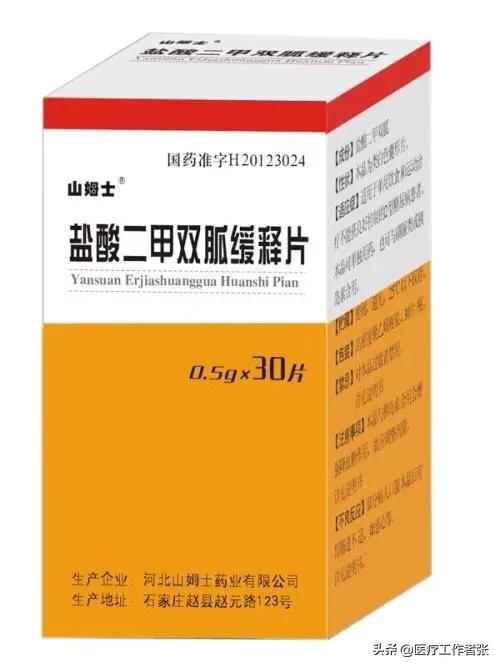
- metforminThe primary pharmacologic effect of metformin is to lower blood glucose by reducing hepatic glucose output and improving peripheral insulin resistance. The main adverse effects of metformin are gastrointestinal. Metformin may increase the risk of hypoglycemia when used in combination with insulin or insulinotropic agents.
- SulfonylureaIt is an insulinotropic agent, and its main pharmacological action is to lower blood glucose by stimulating insulin secretion from pancreatic β-cells and increasing insulin levels in the body.The main ones are glibenclamide, glimepiride, gliclazide, glipizide and gliquidone.Sulfonylureas can cause hypoglycemia if used improperly, especially in elderly patients and those with hepatic and renal insufficiency; sulfonylureas can also cause weight gain. In patients with mild renal insufficiency, gliquidone is preferred.
- TZDsReduces blood glucose primarily by increasing the sensitivity of target cells to the action of insulin.The main ones are rosiglitazone and pioglitazone.TZDs do not cause hypoglycemia when used alone, but can increase the risk of hypoglycemia when used in combination with insulin or insulinotropic agents. Weight gain and edema are common adverse effects of TZDs, and these adverse effects are more pronounced when used in combination with insulin.
- griseofulvinsubstances are non-sulfonylurea insulinotropic agents.The representative drugs are Repaglinide, Naglinide and Miglinide.These drugs lower postprandial blood glucose primarily by stimulating the early phase of insulin secretion and need to be taken immediately before a meal. Common adverse effects of glinides are hypoglycemia and weight gain, but the risk and extent of hypoglycemia is less severe than with sulfonylureas.
- a-Glucosidase inhibitorsReduces postprandial blood glucose by inhibiting the absorption of carbohydrates in the upper part of the small intestine. Indicated for patients with carbohydrates as a major food component and elevated postprandial blood glucose.Representative drugs are acarbose, voglibose and miglitol.Common adverse reactions to a-glucosidase inhibitors are gastrointestinal reactions such as bloating and gas. Starting with a small dose and gradually increasing the dosage may reduce the adverse reactions.
- DPP-4 inhibitorDecreased inactivation of GLP- -1 in vivo through inhibition of DPP-4, resulting in increased levels of endogenous GLP- 1. GLP-1 enhances insulin secretion and inhibits glucagon secretion in a glucose concentration-dependent manner.Representative drugs are selegiline, saxagliptin, vigliptin, riligiline and alogliptin.When using selegiline, saxagliptin, alogliptin and vigliptin in patients with renal insufficiency, care should be taken to reduce the dose of the drug according to the drug's instructions.
- SGLT2 inhibitorsIt lowers the renal glucose threshold and promotes urinary glucose excretion by inhibiting SGLT2, which is responsible for reabsorption of glucose from the urine in the renal tubules of the kidney, thereby reducing the level of glucose in the circulation. The risk of hypoglycemia is increased when combined with insulin or sulfonylureas.Common adverse effects of SGLT2 inhibitors are genitourinary tract infections, and rare adverse effects include ketoacidosis (mainly in patients with type 1 diabetes). Possible adverse reactions include acute kidney injury (rare), risk of fracture (rare), and toe amputation (seen with cagliflozin).The representative drugs are dagliflozin, empagliflozin and cargliflozin.
- GLP-1 receptor agonistGLP-1 agonists exert their blood glucose-lowering effect by agonizing GLP-1 receptors.GLP-1 agonists potentiate insulin secretion and inhibit glucagon secretion in a glucose concentration-dependent manner and delay gastric emptying, reducing food intake through central appetite suppression.Representative drugs are exenatide, liraglutide, lisnatide, and benalactide, all of which require subcutaneous injection.Common adverse reactions to GL P-1 receptor agonists are gastrointestinal symptoms (e.g., nausea, vomiting, etc.), which are primarily seen with initial therapy and may gradually decrease with prolonged treatment.
- Insulin therapy is important for controlling hyperglycemiaThe use of insulin is required when oral hypoglycemic agents are ineffective or contraindicated. When oral hypoglycemic agents are ineffective or contraindicated, insulin is used to control high blood glucose levels and reduce the risk of diabetic complications. At some point, especially if the disease is prolonged, insulin therapy may be the primary, or even necessary, blood glucose control measure.
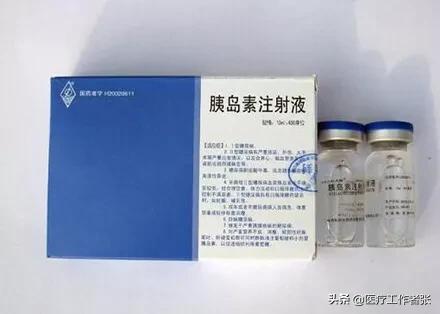
Summary: the best effect of lowering sugar is still insulin, want to quickly lower sugar can increase the insulin dose, but don't do this, arbitrarily increase the insulin dose may have the risk of hypoglycemia, know that hypoglycemia is more likely to be more life-threatening than hyperglycemia, so don't think about quickly lowering sugar. You need to know that the combination of medication or insulin dosage you take is the most appropriate for you during your hospitalization. Never add or subtract medications or insulin dosages at will.
Welcome to leave a comment, think the writing is good, remember to point a praise oh! If you want to know other health knowledge, pay attention to me, private message for you to answer!
Thanks for the invite!
What medication lowers blood sugar quickly?
Currently the most common medications used to lower blood sugar are guanidine (metformin) and ureas (glibenclamide, glipizide, gliclazide, etc.) as well as insulin injections, compared to others, such as Chinese herbs, which can lower blood sugar rapidly.
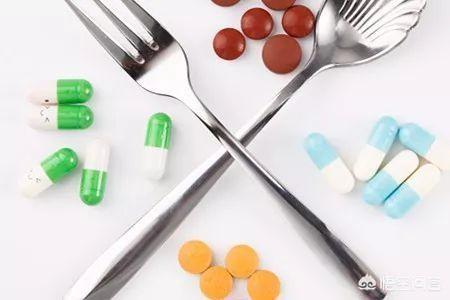
Comparison of each drug treatment/
Metformin is currently the most widely used, for type II diabetes, and belongs to the intermediate-acting class of drugs that can be used with insulin and urexins.
Among the urea hypoglycemic drugs, glibenclamide (euglycemic) has the fastest rate of glucose lowering, and because of its long half-life, the biggest side effect is causing hypoglycemia.
Gliclazide (Damicam) has a mild hypoglycemic effect, reducing blood viscosity in addition to stimulating insulin secretion.
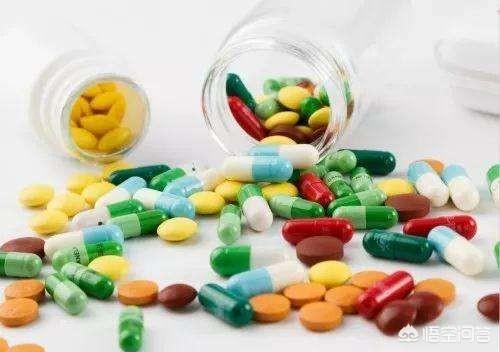
Glipizide (Mepyridamole) is a short-acting urea-flavored hypoglycemic agent for patients with high postprandial blood sugar.
Glimepiride, also belongs to the long-acting period glucose-lowering drugs, rapid, efficient, safe, low probability of hypoglycemia, suitable for mild renal insufficiency.
Of course, there are many other kinds, diabetes medication, under the guidance of the doctor, according to their own conditions to choose drugs. Can not buy drugs on their own, for example, the elderly lowering blood sugar is not to choose to lower sugar fast, should choose a more moderate, smooth lowering of sugar. Young people, with higher blood sugar, can choose to lower sugar fast.
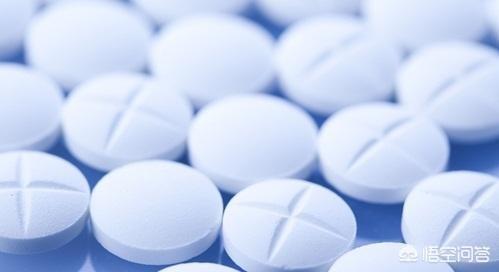
In addition, there is another situation, that is, the development of "drug resistance", such as the beginning of the use of drugs, lowering the rate of sugar faster, after taking a period of time, the emergence of drug resistance, the speed is not so fast.
Therefore, in any case, while taking hypoglycemic drugs, it is necessary to pay attention to dietary control and not to rely solely on drugs. In addition, it is necessary to constantly monitor the changes in blood glucose, as well as the body's response to discomfort, under the guidance of the doctor to switch, etc..
Seeing this problem, the first thing to say is that lowering sugar should not be too fast, otherwise it will lead to larger blood sugar fluctuations, but more likely to have complications. Sugar lovers should pursue a smooth lowering of sugar, rather than jerking high blood sugar into low blood sugar all at once, not only will the body experience discomfort, but also more health risks.
So let's get back to the point, what medications are used for high blood sugar?
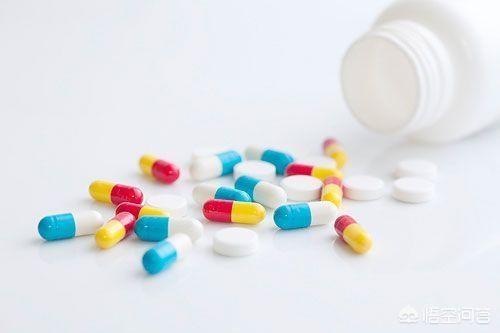
Oral hypoglycemic agents, currently commonly used in clinical practice, include two major categories and five subcategories. The first category is insulinotropic agents, which is simply understood to be oral hypoglycemic agents capable of promoting insulin secretion, and they can be divided into sulfonylureas and glinides. The second category is non-insulinotropic agents, they do not stimulate insulin secretion, but through other mechanisms to play a role in lowering glucose, this category mainly includes biguanide, glucosidase inhibitors, glitazone three categories.
Generally speaking, the smaller the dosage of a drug, the fewer its side effects. These five types of drugs can be used in combination, not only to enhance the effect of lowering sugar, but also to reduce side effects.
Here additional metformin, it is a very widely used hypoglycemic drugs, its mechanism of action is to reduce appetite, reduce the absorption of sugar, but also to a certain extent to enhance insulin sensitivity, more suitable for obese patients to take, but also to help patients lose weight. Initially taking metformin is prone to gastrointestinal adverse reactions, it is recommended to start with a small dose, and gradually increase the dose to the use of the dose. Long-term use of metformin, but also pay attention to vitamin B12 supplementation.
There is no such thing as the best hypoglycemic drugs, and there is no such thing as expensive drugs that are good drugs, drugs that are suitable for your condition are good drugs. So we can not be rash, cheap no good, a penny a penny, do not take the price of the drug, the doctor let you use what drugs on what drugs.
I hope this answer helps, remember to like it!
In fact, for diabetic patients, blood glucose lowering too quickly is not good, many patients in the repeated fluctuations in blood glucose has long been adapted to higher levels of blood glucose values, once the blood glucose drops rapidly, even if still within the normal range, but still cause hypoglycemic reaction;
In addition, large fluctuations in blood glucose levels within a short period of time can cause great harm to our health, even greater than the harm of diabetes itself, and research has confirmed that frequent and large fluctuations in blood glucose levels will promote the development of diabetes and accelerate the emergence of its complications; therefore, for diabetic patients, the safest and most reliable method of lowering blood glucose should be to slowly reduce the blood glucose level to the normal range in small increments. The safest and most reliable way for diabetics to lower their blood glucose levels is to bring them down slowly and in small increments to normal;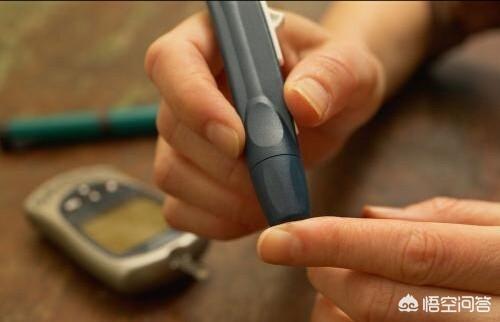
In addition, compared to the glucose-lowering effect of several other drugs within the therapeutic dose, sulfonylureas and insulin are considered to be quite rapid; some patients are even able to increase the dose of the drug in order to lower their blood glucose quickly, resulting in a drop in blood glucose too fast, so that their blood glucose level falls within the normal range but continues to fall, then a severe hypoglycemic reaction may follow, and, importantly, the hypoglycemia caused by sulfonylureas is very difficult to be reversed, and severe brain dysfunction or even death may occur! Hypoglycemia caused by sulfonylurea hypoglycemic drugs is very difficult to be reversed, and severe brain dysfunction or even death can occur!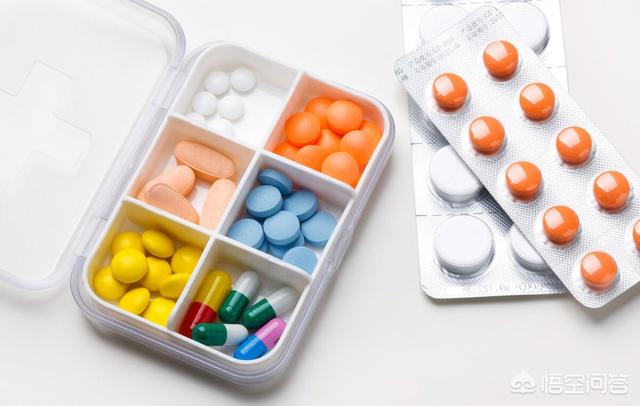
Therefore, you should choose a gradual approach to lowering your blood sugar and try to avoid large fluctuations in blood sugar levels within a short period of time!
The above is for reference only!
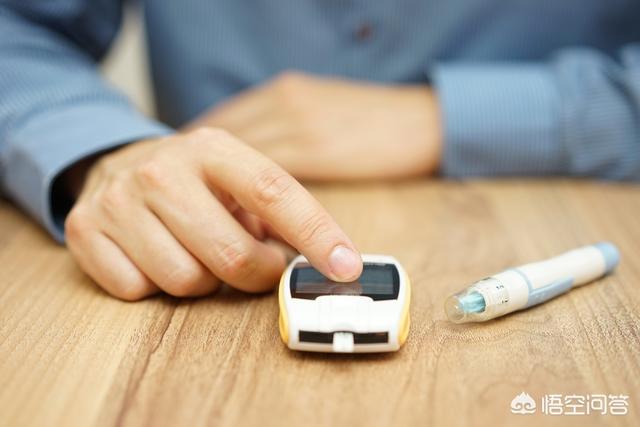
Hello, medications to lower blood sugar are divided into two categories: oral and subcutaneous. Insulin that is given subcutaneously, and insulin that is given intravenously.
Oral hypoglycemic agents, mainly in the following categories: 1, α-glucosidase inhibitors, mainly acarbose, voglibose; 2, prokinetics, prokinetics are subdivided into two kinds, non-sulfonylurea prokinetics, such as reglaneride, nateglinide, and sulfonylurea prokinetics, such as gliclazide, etc.; 3, DPP-4 inhibitors, leptin analogs, selegiline, riligiline, etc.; 4, SGLT-2 inhibitors, dag leupeptin, and engeletin analogs.
Another one that is more commonly used is metformin, which is a first-line drug for type 2 diabetes with indications. However, it is advocated for patients as long as there are no contraindications. Contraindications are hepatic and renal insufficiency, gastrointestinal reactions, and very thin people can't use it. If it works, metformin is cheap and good, and is a very cost-effective drug.
However, lowering blood sugar is not something that can be achieved overnight simply by medication. It is important to pay attention to dietary control and regular monitoring of blood sugar to see if the medication used is working for you.
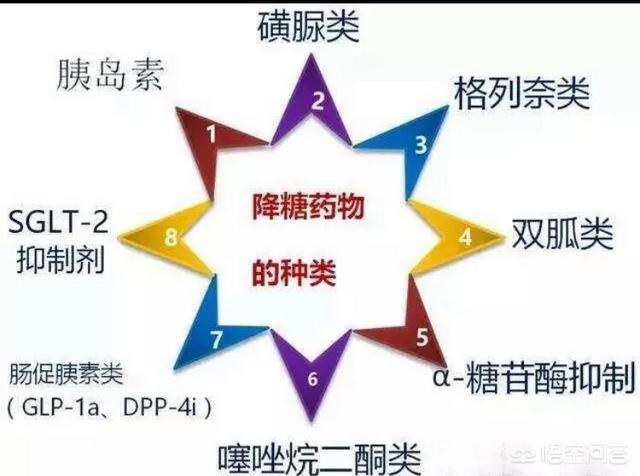
Now there are many kinds of hypoglycemic drugs on the market, but if you say the fastest hypoglycemic, then it should be non-insulin, in addition, sulfonylureas and non-sulfonylureas to promote lactation, as well as biguanide drugs, are able to reduce the magnitude of blood glucose will be relatively high.
But it is true that the faster the blood sugar drops, the better, but not in clinical practice!
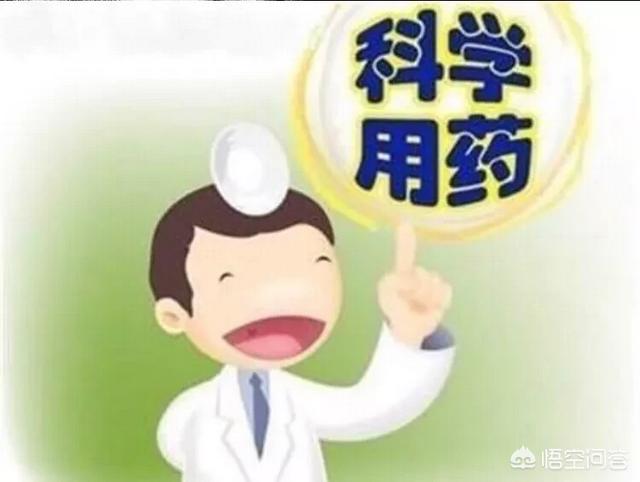
A patient is in a state of high blood sugar, often have adapted to, if once his blood sugar quickly reduced to normal, its will show symptoms of hypoglycemia, appearing false sweating, dizziness, nausea, confusion, blurred vision and so on. At this point, some patients will be very confused, obviously my blood sugar within the normal range, so why there will be so many reactions? It is our body, to this already normal blood sugar intolerance.
Therefore, in clinical work, the doctor will not let the patient's blood sugar drop to the normal amplitude at once, but little by little to drop, so that is the safest and most reliable. If hypoglycemia occurs in the process of using hypoglycemic drugs, it will be even more horrible than high blood sugar, and will bring more harm to the body.
Another very important thing is that, never outside the said Chinese medicine sugar, remember that the Chinese medicine itself to lower the speed of sugar is particularly slow. If you eat the kind of Chinese medicine to eat down sugar quickly, then the drug inside must have added the western medicine ingredients in it, and may be very cheap kind of. But this kind of western medicine is which kind? How much is the amount? You do not know! So in terms of lowering sugar, I have always been the principle is to follow the doctor's advice to use drugs!
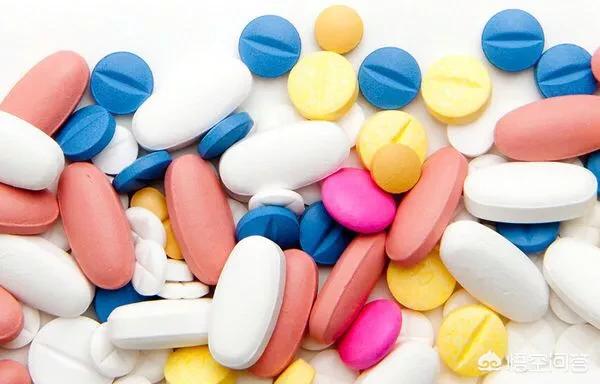
I am a medical doctor, a resident, specializing in the popularization of medical knowledge for the benefit of human health, if you want to know more, please pay attention to me, have questions can be left a message, will respond!
What medication lowers blood sugar quickly?
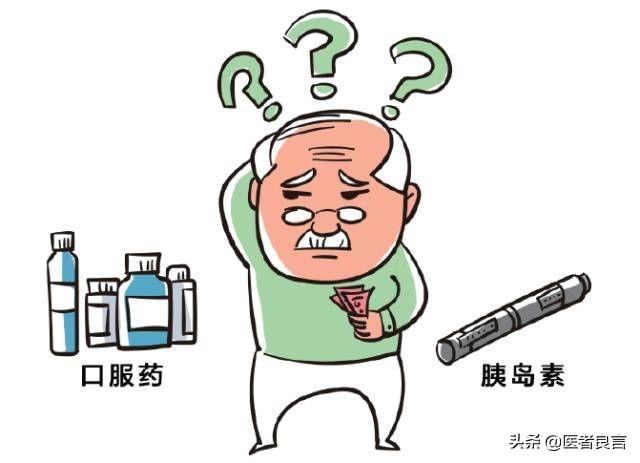
At present, China's high blood pressure patients have more than 100 million people, such a large base, decided that diabetes is a more popular topic. There may be a lot of patients will be wondering, is there any can quickly reduce blood sugar drugs? Today I will share the drugs that can quickly lower blood sugar.
1. The most powerful in lowering blood sugar - insulin:
- The primary pathogenesis in diabetic patients is inadequate insulin secretion or insulin receptor insensitivity to insulin.This pathogenesis therefore predisposes insulin to be the strongest hypoglycemic agent, bar none;
- Insulin is primarily indicated forType 1 diabetes mellitus, type 2 diabetes mellitus in which oral hypoglycemic drugs are ineffective and blood glucose is significantly elevated, pregnancy, and diabetes mellitus combined with complications;
- But insulin also has a number of side effects, most commonly hypoglycemia, other adverse effects include edema, blurred vision, allergic reactions, and subcutaneous fat atrophy;
2. The second strongest in lowering blood sugar - sulfonylurea hypoglycemic drugs:
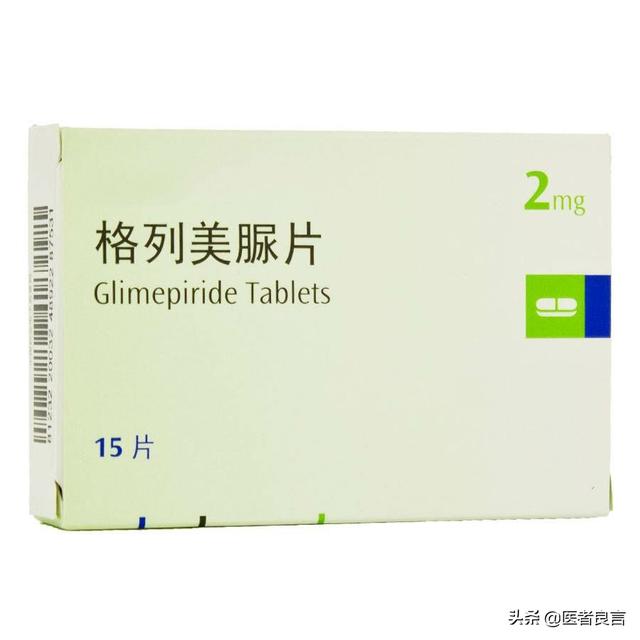
- Sulfonylureas are insulinotropic agents, which is the most powerful of all the non-insulin hypoglycemic drugs;Common sulfonylureas include gliclazide, glimepiride, and glipizide.Although it has a strong hypoglycemic effect, it is not suitable for any diabetic, like theSulfonylureas are not suitable for pancreatic islet cell failure, pancreatectomy, pregnant women, lactating women, and children with diabetes;
- Adverse reactions to sulfonylureasPrimarily a hypoglycemic reaction, other side effects include weight gain, causing rashes and itchy skin, and abdominal discomfort.
Diabetic patients cannot lower their blood glucose quickly because many hypertensive patients have adapted to a hyperglycemic state, and if they suddenly lower their blood glucose quickly they are prone to induce hypoglycemia, and they also have an increased risk of complications.
Final Summary: The fastest glucose-lowering drugs available are insulin and sulfonylureas.
The above is my answer to the question, purely hand-typed, it is not easy, if you feel that the writing can be rewarded with a praise, if you have any questions you can leave a message below ......
What medications lower blood sugar quickly? Theoretically, insulin is the most effective medication for lowering blood sugar, especially when administered intravenously, which can have an "immediate effect".
In addition, the use of oral hypoglycemic drugs, can also be rapid lowering of blood glucose, clinically commonly used hypoglycemic drugs, including sulfonylureas (glipizide, gliquidone, glimepiride, gliclazide, glibenclamide, etc.), non-sulfonylureas (nateglinide, repaglinide), alpha-glycosidase inhibitors (acarbose, voglibose), bisphosphonates (phenethylbiguanide, metformin), insulin and its analogues.
However, the drug should not be taken indiscriminately, for patients with high blood sugar, each person's condition is different, if the pursuit of rapid to achieve the effect of lowering blood glucose, not only may not achieve the therapeutic effect, but also may cause the opposite effect, for example, some patients unauthorized increase in the dose of insulin, the result of the counter-induced severe hypoglycemia, it is important to know that, sometimes hypoglycemia damage is often even more violent than hyperglycemia, and may cause the whole body It may cause low energy metabolism of important organs and partial functional deficits.
Overall, if a patient's blood glucose level is too high, then he or she must pay attention to dietary adjustments in daily life, as well as strengthen physical exercise, and under the guidance of the doctor, use the appropriate medication according to the patient's specific condition in order to control the development of the disease.
What medicine can quickly lower blood sugar, no other, and do not need to ask whether it is type 1 or type 2, and do not have to ask what stage, the only universal medicine insulin ear.
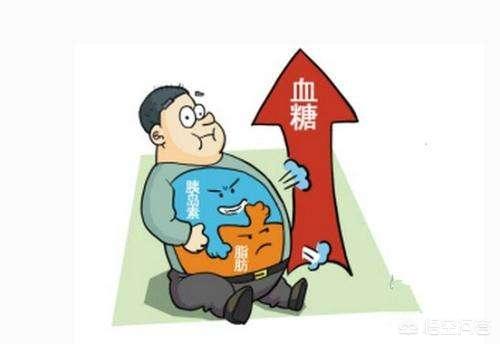
Why does blood glucose rise, because of insulin insufficiency, including relative insufficiency and absolute insufficiency, absolute insufficiency is well understood, that is, the pancreas secretes less; relative insufficiency is, not only the secretion is not less but more, but because of insulin resistance, can not achieve the desired effect. For these two kinds of diabetes, in the late stage is basically a large number of insulin injections, from which, it is known that only increase the insulin dose is reliable.
Of course, diabetes is still mainly type 2 more, for type 2 diabetes drugs, mainly divided into two categories, one is to improve insulin sensitivity, the mechanism of this drug is aimed at insulin resistance, the typical representative of the metformin; food will also have some of the ingredients that have this effect, such as n-3 polyunsaturated fatty acids, the most common is DHA and EPA. the other one is insulin.
When it comes to insulin, the main one is the injectable form, but this one still brings a lot of pain and inconvenience to diabetics; there is no oral form on the market yet, but it is said that there is a breakthrough in the R&D progress of some companies.
Zhao Wei, Registered Dietitian, welcome to follow.
I am Jiang Xiaosheng, I hope that through the opportunity of popularizing medical knowledge to let people better prevent diseases, understand diseases, and have a healthy and happy life habits. Interested friends can follow me. Let me answer about this question.
With the development of society, the improvement of living standard and the progress of population aging, more and more people suffer from diabetes. As we all know, the main method of diabetes treatment is to minimize the risk of various complications caused by hyperglycemia by making blood glucose as standard as possible through hypoglycemic drugs.

So what are the common diabetes medications?
Currently, there are seven major types of oral hypoglycemic drugs: sulfonylureas, glinides, biguanides, α-glucosidase inhibitors, thiazolidinediones, and DPP-4 inhibitors and SGLT-2 inhibitors, which have been marketed in recent years.
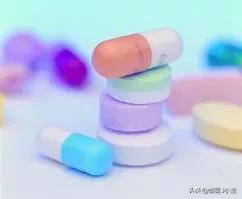
So what are the indications and side effects of these seven classes of drugs?
I. Sulfonylureas.
1, Advantages: one of the most widely used oral hypoglycemic drugs.
2. Representative drugs: glibenclamide, glimepiride, gliclazide, glipizide, gliquidone and so on.
3, indications: suitable for pancreatic β-cells still have some secretion function of type 2 non-obese diabetic patients, but with diabetic ketoacidosis, severe liver or kidney injury and in pregnancy, lactation type 2 diabetes mellitus patients are not suitable for this drug.
4, side effects: long-acting and short-acting sulfonamides can not be linked, can not privately increase the amount of drugs, and it is best to serve before meals, otherwise it is easy to trigger hypoglycemia.
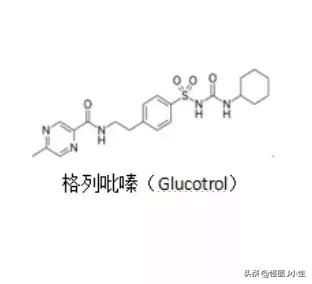
II. Gliclazones
1, Advantages: fast acting effect after taking, can significantly enhance the early phase insulin secretion after eating, so as to control postprandial hyperglycemia.
2. Representative drugs: mainly including Repaglinide, Naglinide and Miglinide.
3, Indications: mainly for patients with type 2 diabetes mellitus with certain islet cell function; renal insufficiency can also be applied, but renal failure is prohibited.
4, side effects: high dose use can also cause hypoglycemia, although the incidence of low and mild, but also need to regularly monitor blood glucose.
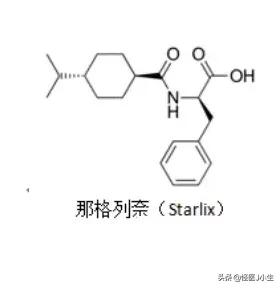
III. Biguanides
1, Advantages: The drug is the first proven to prevent diabetes or delay the onset of diabetes. Known for few side effects and relatively safe drug application, there are few contraindications, but pregnant women, breastfeeding and children under 10 years of age should not be used.
2. Representative drug: metformin.
3, Indications:The drug is mainly used in the treatment of type 2 diabetes.
4, side effects: may cause gastrointestinal reactions, hypoglycemia, induce lactic acidosis and affect the absorption of vitamin B12. However, side effects will be rare if the product is used in accordance with the dosage.
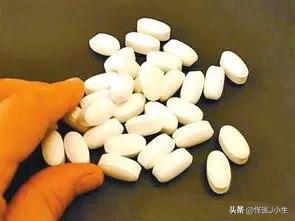
IV. α-Glucosidase inhibitors
1, Advantages: can reduce the rise of blood glucose after meals, and indirectly improve fasting blood glucose, applicable to rice, noodles and other carbohydrates as the main diet of Chinese diabetics, known as "the most suitable for the Chinese dietary habits of hypoglycemic drugs".
2. Representative drugs: acarbose, voglibose and miglitol.
3, Indications:Can be used for type 2 diabetes mellitus, can also be used for type 1 diabetes mellitus, used to help control postprandial blood sugar.
4, taking method: chewed with the first mouthful of rice with swallowing, can be better to achieve the goal of delaying food absorption, general oral three times a day.
5, side effects: may cause abdominal distension, abdominal pain, diarrhea and other symptoms.
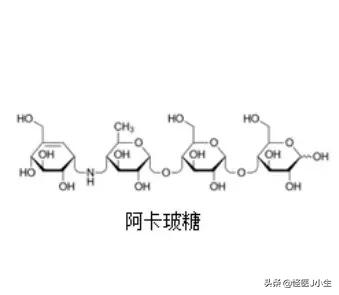
V. Thiazolidinediones
1, Advantages: Increase the sensitivity of peripheral tissues to insulin, assisting other hypoglycemic drugs to play a better role in lowering glucose, and will not stimulate the pancreatic islet β-cells.
2. Representative drugs: rosiglitazone, pioglitazone.
3, Indications: for the prevention and treatment of type 2 diabetes mellitus.
4, side effects: may cause swelling and liver function abnormalities, so cardiac insufficiency and liver function abnormalities should be used with caution.
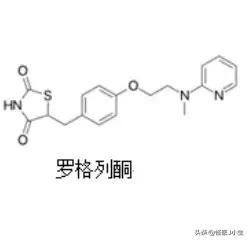
VI. DPP-4 inhibitors
1. Advantages: It can suppress appetite, slow down the speed of gastric emptying, and protect cardiovascular, cerebral and renal organs. It does not cause hypoglycemia when used alone.
2. Representative drugs: Rigliptin, selegiline, saxagliptin, alogliptin and vigliptin.
3, Indications: for adults with type 2 diabetes without diabetic ketoacidosis and type 2 diabetes with large food intake. Not recommended for pregnant women, lactating women and patients with severe gastrointestinal disorders.
4, Side effects: may occur: nasopharyngitis, headache, nausea, vomiting, constipation, upper respiratory tract infections: allergies, impaired liver function, etc., but uncommon.
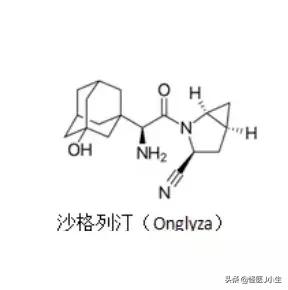
VII. SGLT-2 inhibitors
1. Advantages: It can help patients lose weight and lower blood pressure, and also protect the kidneys.
2. Representative drugs: Cagliflozin, Dagliflozin, Emgliflozin, Egliflozin, Lugliflozin, and Togliflozin.
3, Indications: applied to adult type 2 diabetes mellitus, can be used alone, can also be used in combination with other oral hypoglycemic drugs and insulin.
4. Side effects: genitourinary tract infection, diabetic ketoacidosis (rare)
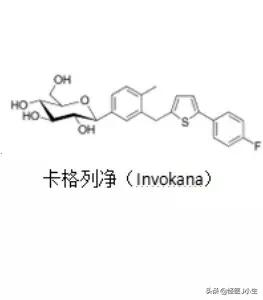
Every kind of hypoglycemic drugs have the effect of rapid sugar reduction, the magnitude of the effect also varies, but we must understand, not the greater the intensity of sugar reduction the better, some symptoms would have been very light, a little bit of hypoglycemic drugs will be enough, if the use of fast glucose-lowering drugs, accidentally hypoglycemic on the trouble. So be sure to find a doctor to customize a sugar-lowering program that suits you. Instead of blindly pursuing the role of sugar-lowering fast. The above is about sugar-lowering drugs. I hope it can help everyone.
I'm Jiang Xiaosheng, if you are interested you can follow me, or you can click a like before you go. If you have any questions you can comment below, see will be back, back will be fast. Thank you for your support.
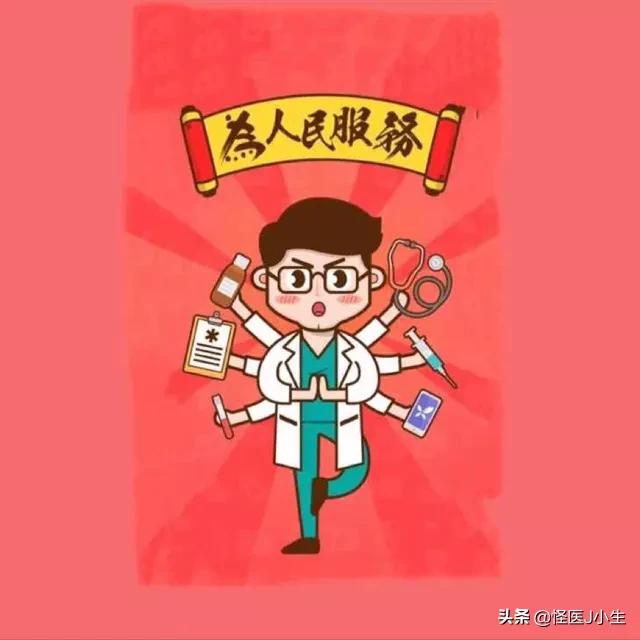
This question and answer are from the site users, does not represent the position of the site, such as infringement, please contact the administrator to delete.